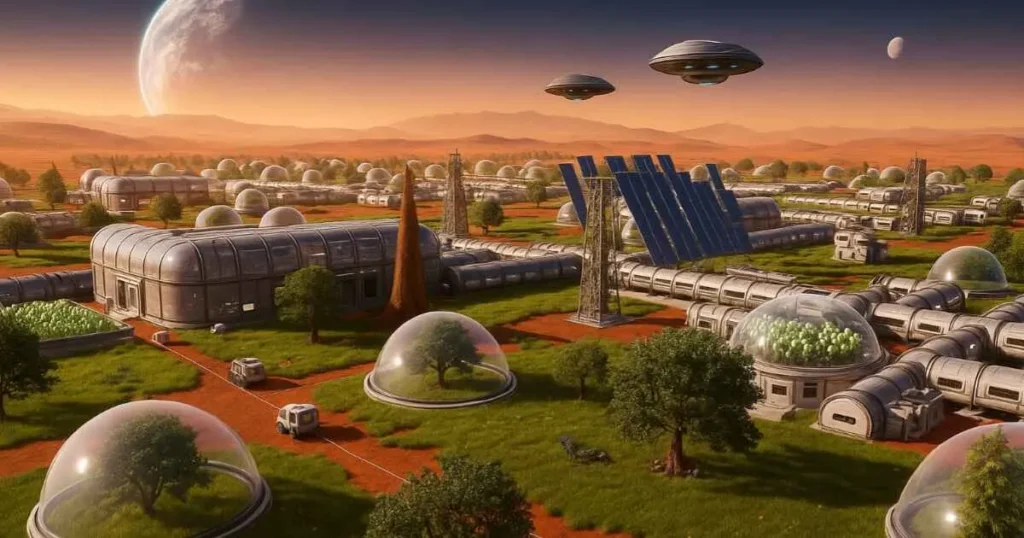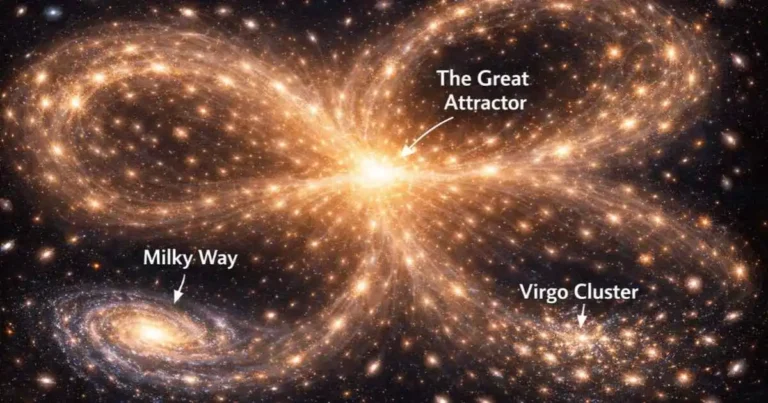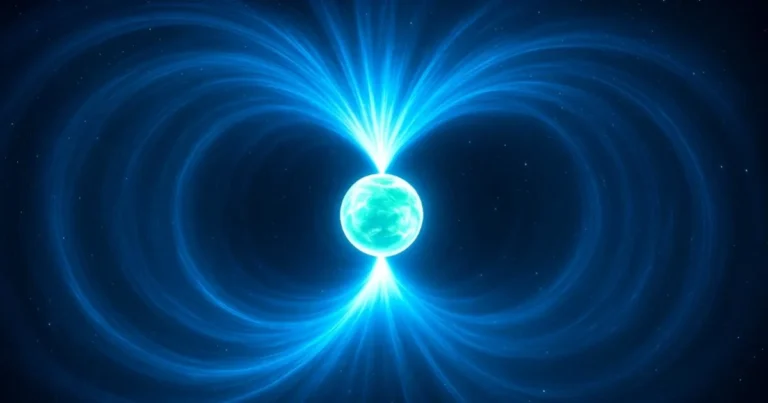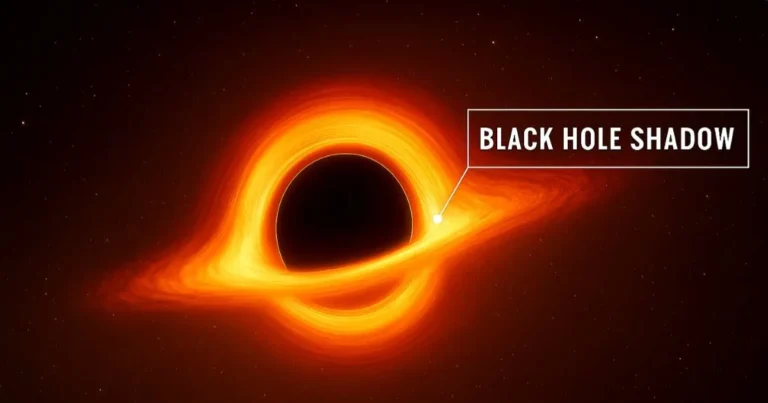Why Colonize Mars Instead of Other Planets?

Tags:
- Mars Colonization
Over the past few years, the concept of why colonize Mars and not other planets for human life has shifted from science fiction to a strong scientific and practical argument. Mars possesses a uniquely well-equipped environment to support life beyond Earth — from water ice reserves and habitable gravity to a day-night cycle that most closely corresponds with our own. In this blog, we explore the rational motivations and scientific reasons that make Mars humanity’s best chance at a second home.
From Islands to Planets – Humanity’s Curiosity to Explore
There used to be a time when humans lived on small islands by forming groups. They had no idea that there was life beyond their islands. They started realizing gradually that there could be something far beyond those infinite waters, maybe another island that was inhabited by another group of people. This curiosity drove them to break the shackles and discover life beyond their tiny island.
And now we say the whole world is one, and the planet Earth has become small. We now have access to the entire Earth, and every person has been interlinked by different means.
But our planet is a medium-sized planet and doesn’t have all the resources to support humanity forever, as our population is increasing exponentially. Our Mother Earth has been facing several problems, due to which, sooner or later, it won’t be able to sustain life, and hence we need a new home.
But the question is, finding a new home other than Earth is like making any other planet of our solar system a new home, because we have no access to other star systems apart from the Solar System. This seems very fascinating—and why can’t it be?
The Human Drive to Look Beyond Earth
For centuries, humans have looked up at the night sky and wondered what lies beyond. Who hasn’t counted stars in their childhood? First, we learned the difference between stars and planets, and again started wondering which one could be a star and which one could be a planet. But today, that curiosity has evolved into something more ambitious: the idea of building homes, communities, and even entire civilizations on other worlds. Who would have thought a few decades ago that we humans would think of another planet as our home? I guess no one!
Again, the idea of a new home is very challenging because we have various planets in our solar system, and among all the planets in our solar system, Mars stands out as the most promising candidate for colonization. But why Mars, and not any other planet? That’s the question we are going to answer here.
Why Colonizing Other Planets Is Necessary for Survival
Earth’s Fragility and Limited Resources
As we mentioned earlier, Earth has become fragile, as it has been facing problems like climate change, overpopulation, natural disasters, and even catastrophic events like asteroid impacts that erased the big and mighty dinosaurs from the Earth, and this reminds us that relying on one planet is risky.
If we want humanity to exist for a long period of time, colonising another world is necessary, and it is the need of the hour because we have time to build the kind of technology that is required to colonise a planet.
Lessons from History and Space Exploration
What excites me more about this idea is that if and when we move on to colonise Mars somehow, then our Earth centuries later would be much more fragile than it is now, and even then, Earth would be far better than the Mars of today. And if we can bring life back on a dead planet like Mars, then why wouldn’t we be able to bring back a dying planet like Earth to life again?
And this excites more about the idea of colonizing Mars and the moon landing back to 1969 excited a generation of scientists to explore the infinite universe and now the time has come when we are thinking of colonizing Mars then just imagine if we move on to colonize Mars then this achievement of humans may excite another generation of scientists to look forward more deep into space and it may also be possible that we may develop that kind of technology that can take us far beyond to deep space and may be to an another star system where there would be a planet like Earth.
But this is the story of the future. What we have now is Mars, and let’s see why Mars is the need of the hour.
Why Colonize Mars Instead of Other Planets?
Mars is one of the most promising places for humans to live beyond Earth. It gives us both opportunities and challenges:
A Day on Mars – Similar to Earth’s Cycle
A day on Mars(24hours and 39 minutes) is almost the same as on Earth just 40 minutes longer, so our bodies could adjust much more easily than on any other planet.
Presence of Water for Survival and Fuel
Water is the main component for life to survive anywhere in the universe. Mars has frozen water at its poles and even underground, which we could use for drinking, growing food, and even making rocket fuel.
Air, Climate, and the Potential for Terraforming
The atmosphere is thin and very cold, and is made up of Carbon Dioxide. But it does provide a bit of radiation protection. However, the scientists suggest that we can terraform Mars’s atmosphere with the right technology, gradually similar to Earth’s, but this may take years or decades or may be centuries; however, we are so sure that we could build safe habitats or even try to improve the atmosphere over time on Mars.
Gravity on Mars – Balance Between Health and Efficiency
Mars has about one-third of Earth’s gravity. That’s enough to keep our muscles and bones healthier than in space, but still light enough to make lifting and building things easier.
Why Not Colonize Other Planets?
Why Not Colonize Venus?
Often called Earth’s twin, the surface temperature of Venus is nearly 475 °C, making it the hottest planet of our Solar System, and it also has clouds made up of sulfuric acid, which makes it more like a hell than a home. We humans would not survive there for more than a minute. No chance here!
Why Not Colonize Gas Giants or Their Moons?
Humans need a solid surface for their survival and they have no solid ground to stand on, and their extreme radiation belts are deadly. However, their moons (like Europa or Titan) are fascinating and they have shown signs that they could sustain life, but they are far colder and harder to reach than Mars.
Why Not Colonize Mercury?
Planet Mercury is too close to the Sun, with extreme temperature swings from boiling hot to freezing cold, and one day on Mercury would be like 88 days on Earth. Again no chance!
Why the Moon Isn’t the Best Option for Humans
Next is the Moon, the nearest celestial body to Earth. Very beautiful and expected to have water on its surface. Again, it’s fascinating for space exploration, but making it a new home isn’t a good idea because it lacks atmosphere and has much lower gravity than Earth, making it more difficult for habitation as compared to Mars.
Mars as Humanity’s Stepping Stone to the Stars
We have seen all the options that we have got now and we see that Mars is the best possible option. But as I mentioned earlier, colonising Mars isn’t just about having another home. Colonizing Mars is about unleashing our potential that if we can colonize one planet then colonizing moons of Jupiter or Saturn will be our next target and gradually we can utilise all the resources of The Solar System and hence this may enable us to develop a technology that would take us to other Star System where we would find a planet which is habitable in itself.
Conclusion – The Hope of Becoming a Multi-Planet Species
Mars is both harsh and full of possibilities. It won’t be easy to reach or live there, but that challenge is exactly what makes it worth trying. Going to the Red Planet means pushing the limits of what humans can achieve, protecting our future, and proving that exploring new worlds is part of who we are.
The journey to Mars isn’t just about science — it’s about survival, creativity, and hope.
A hope that could make humans a multi-planetary species, and a hope that might allow us to survive longer — maybe even forever.
Comments
Please log in to leave a comment.
Related Posts

Laniakea Supercluster: Our True Cosmic Home
The Laniakea Supercluster is a vast cosmic structure containing our Milky Way and over 100,000 galaxies. Defined by motion, not borders, it reveals our true place in the universe and reshapes how we understand cosmic structure.

Magnetar: The Universe’s Most Extreme Magnetic Monster
Magnetars are ultra-magnetic neutron stars, cosmic beasts that emit bursts of radiation so powerful they can shake entire galaxies. Learn how they form, what makes them unique, and why their mystery continues to fascinate astronomers.

What Is a Black Hole Shadow? The Ultimate Glimpse into the Abyss
If you could stare into the heart of a galaxy, past the light, past the stars, and into pure darkness, what would you actually see? When astronomers talk about the black hole shadow, they’re referring to one of the most mind-bending sights in the universe, the silhouette of the unseeable, the faint outline of where […]